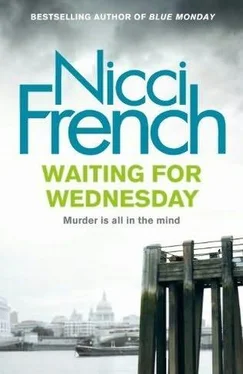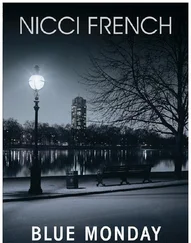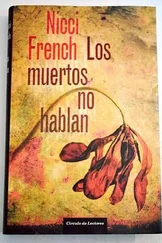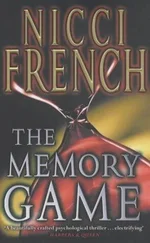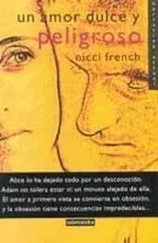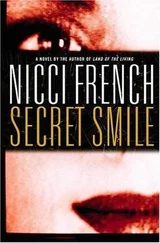Sharon Gibbs was lifted from her crouched position on the steps to a stretcher. Her huge eyes gazed imploringly at Frieda from her pinched, dirty face. Now Lawrence Dawes was carried from the house, still tangled in the washing line. His eyes were flickering and they opened briefly on Frieda. For a moment they stared at each other, into each other, and then he turned his head away.
‘Please can someone tell Karlsson?’ Frieda continued.
‘Karlsson?’
‘DCI Malcolm Karlsson.’
A woman was wrapping a blanket around Josef’s shoulders, unwrapping Frieda’s bloody scarf from his neck. He stood up, bulky and dazed, staggering slightly. Frieda put her arms round him, careful of his dangling arm, and pressed her head against his chest. She could feel his heart hammering and smell his sweat and his blood. ‘You’ll be fine now,’ she said. ‘You’ve done well, Josef.’
‘I?’
‘Yes. I will write to your sons to tell them. They will be very proud of you.’
‘Proud?’
‘Yes, proud.’
‘But you –’
‘I’ll come and see you very soon.’ She looked at the woman. ‘Where are you taking him?’
‘St George’s.’
Now Josef was gone and Fearby’s body was being carried out of the house. His face was covered, but Frieda could still see his fine white hair. His feet poked out of the blanket the other end; the shoes were old and scuffed and on one the lace was undone.
The ambulances slid away, and suddenly she was alone. There were gathering crowds in the street, and in the house the light was unnaturally bright and full of noises, voices. But here, on this small patch of soil, she was by herself at last. The door gaped behind her, like a foul, hot mouth; she could smell its sickening stench.
‘Frieda Klein?’
A man was in front of her, blocking out the light.
‘Yes.’
‘I need to talk to you urgently. I will be a few more minutes. Would you wait for me here, please?’
He left her again. Her mobile rang. She looked at it – Sandy – but didn’t answer. Then she turned it off.
Without thinking what she was doing, she stood up and went into the house. No one stopped her or even seemed to notice. She stepped out of the back door into the garden. It was the same size and shape as Lawrence Dawes’s garden, and was full of flowers. Bright, sweet, fragrant flowers, peonies and roses and foxgloves and tall lupins; perhaps they were feeding on the bodies, she thought. Perhaps that was why they were so strong and bright and colourful. She walked down the lawn, past a well-tended vegetable plot, until she was standing by the shallow brown River Wandle. She could see the pebbles on its bottom, and a few tiny dark fish. Behind her, there was the roar of the world, but here just the trickle of water; she could hear its faint gurgle. A swallow dipped past her, low and fast, then up into the evening sky.
She knew she had to go home. She thought of something she had read in a book when she was a child. If you’re lost in the jungle, find a stream and follow it downhill and it will reach a larger river or the sea. This little brook would take her home.
She took off her sandals, rolled up her jeans and stepped into the water. It was cool, not cold, and rose to her ankles. She walked delicately along the stony bed until she was standing outside Lawrence Dawes’s garden. They’d drunk tea together there, and he’d shown her this little river. She could hear his voice now, mild and amiable: … we used to make little paper boats and put them on the stream and watch them float away. I used to tell them that in three hours’ time, those boats would reach the Thames and then, if the tide was right, they’d float out to sea.
Frieda crossed to the other side and stepped out on to a narrow, overgrown path, pulling her sandals back on to her wet feet. Here it was green, tangled and wild – a place of nettles and cow parsley, a smell of grass, mulched leaves and moisture. She started to walk.
The secret river narrowed to a ribbon of brown water. Frieda kept pace with its flow, watching the bubbles beading and bursting on its surface. She saw Jim Fearby’s face. She saw his dead eyes staring at her. What had his last thoughts been? She wished so much that he had stayed alive long enough to know he had won. She saw Josef’s face. He would lay down his life for her, but she would lay down hers for no reason at all, except that it seemed a cursed thing.
A short distance away in the opposite direction, the Wandle disappeared underground for ever, into a network of springs, burrowing its way under the earth. Here it wound north, the path following it almost closed over now with nettles that stung her feet and hanging branches that stroked her cheeks, so that Frieda felt she was in a tunnel of green light. She smelt something sweet and nasty; there must be the carcass of an animal or bird rotting nearby. This little river had worked so hard in its time, and carried so much shit and poison and death, a sclerotic artery clogged with waste. There would have been water mills once, and tanning factories, lavender fields and watercress ponds, litter and chemicals and flowers. All gone now, demolished and lying buried under concrete and housing estates. To her left Frieda could see through the tangle of weeds a deserted warehouse, a rash of light industrial units, a deserted car park, a rubbish dump rising out of the dusk. But the little river flowed on, quick and clear, leading her out of the labyrinth.
The water widened again, slowed. There were faces she could see in its swirling course, rising up at her. Faces of young women. Weeds for hair. Calling out for help. Too late. Only Sharon Gibbs had been saved: Frieda could hear her animal cries and smell her dying flesh. In the darkness, rats with yellow teeth – what had been done to her and what had she felt? Drinking tea in the garden, smiling. Shaking his hand – what had that hand done? His daughter. Lily. Lila. Wild child. All those wild children. Lost young women. How many more were there, in their own underworlds?
She saw Ted’s young face, then Dora’s and Judith’s – motherless, fatherless children, hungry for love and for safety. Lives wrecked. Homes torn apart. What had she done? How could she bear the damage she had caused and carry the burden through the rest of her days?
Now the river was channelled between concrete banks, tamed. And suddenly the path was a road that ran alongside a red-brick, buttressed wall. For a moment, she felt that she was in a country village long ago. There was a grey church beside her, surrounded by a huddle of graves. Frieda looked at one of the names, a teenage boy dead in the Great War. She thought she saw a shape rise up from the ground, but it was only a trick of the dying day. She didn’t know what time it was. She didn’t want to turn on her mobile to see. It didn’t matter anyway. She could walk through the evening and into the night. She could walk for days and never stop. The pain in her legs and her lungs was good; better than pain in her heart.
But where was her river? It had disappeared. They had taken it away from her. She stumbled, feeling sharp pebbles under her soles. Ahead, a park stretched out, an avenue of great trees. She walked towards it and after a while saw a small stone bridge. She had found it again and it took her to a pond. Dragonflies in the dusk. A child’s sandal on the bank. But it led her to a road and then disappeared, and a car sped by with the bass thump of music coming from it, and then a man in black leather crouched low on his motorbike, and Frieda was lost in a dingy corridor of houses and flats. But she walked in the direction it had been flowing and after a few minutes there it was, merry and leaping, as if it had been teasing her. Past buildings, cottages, an old mill, and once more she was on an overgrown path, leaving the road behind. The surface of the city dropped away as she walked along its hidden corridor. You could stand ten feet away and not know it was there. You could hide there, seeing but unseen. Like a ghost.
Читать дальше
